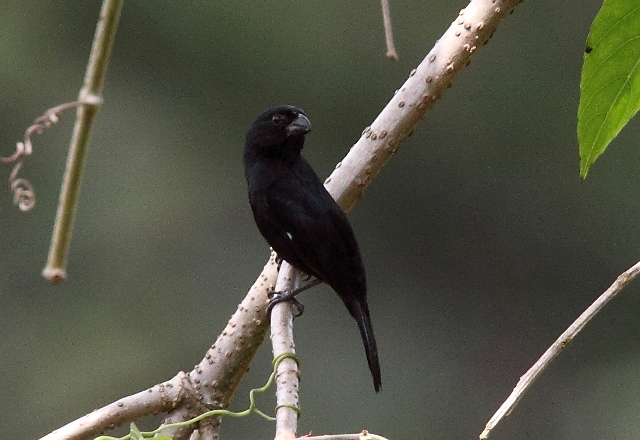Last year at this time we had a drought but this year’s June and July have brought the heaviest rains seen here in quite a while. We are fortunate here at home because we are located on a reasonably gentle slope. This means that we have not suffered the dreadful mudslides that have affected some of our neighbours and all of the local roads. A local Santa Cruz resident was killed on his way down from Los Bajos del Volcán when he tried to skirt around a big landslide and fell to his death in the Rio Guayabo hundreds of feet below.
Roads to the town of Turrialba from here were all cut and the main road will remain so until they can repair the foundation of the bridge over the Rio Turrialba. This is at the same location where the river almost took out the main road to Guayabo National Monument last year. The Monument itself is now closed for at least two weeks because its paths and walkways have all been destroyed in the rains.
All of this quite obviously effects very seriously our ability to get out into the field to see birds. Many of the best sites are now off limits until some semblance of normality is restored. Here in San Antonio both the Rio Guayabito and the Quebrada La Loca have changed from streams into rivers, with their respective river beds scoured quite clean of vegetation except for large tree trunks washed away from the banks. New streams formed on the hillside opposite the house, where huge chunks of earth fell in mudslides. An especially large one is above don Martin’s lot on the far bank of Quebrada La Loca and threatens to collapse one of the steepest banks of the river.

Usually, just a trickle, this photo of Quebrada La Loca was taken from our bridge after the waters subsided; don Martin’s property is the thickly wooded area into which the river disappears
And now for the birds. Although all rivers and waterfalls look magnificent, the Sunbittern and the Fasciated Tiger-heron have now not been seen for many weeks. The cow pastures are full of Great-tailed grackles instead of Cattle egrets, which are always scarce at this time of year, and of course there are no migrants present other than the southern migrant Yellow-green Vireo.
On the other hand, there are at least four species nesting either in the garden or very near by that have not always been here with us. The first is the Blue-crowned Motmot, still gorging itself, post-nesting I presume, on bananas. At least one pair of Orange-billed Nightingale-thrushes sings daily, and I have finally verified that we have a pair of Slaty Spinetails churring in the undergrowth each morning. The fourth species is the Variable Seedeater, which is not always easy to find in our area; at least one pair has nested and the parents are feeding a single buffy-headed juvenile. As its name indicates, its plumage is variable. Turrialba has the Caribbean race, in which the male is all-black with a tiny smudge of white in the wing. It’s a common little bird in Costa Rica, but look how pretty! This photo, and the one above, by kind courtesy of Karel Straatman.







Thank you Paul, for all this information.
LikeLike